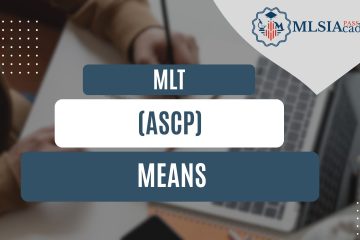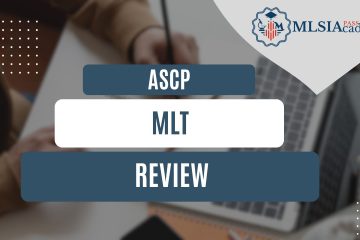MT or MLT ASCP Certification: Want to Get One?
Whether your field is a lab scientist or technician, the ASCP Board of Certification offers certificates for the entire lab team.
MT ASCP and MLT ASCP are its most robust credentials.
Are you confused about getting MT or MLT ASCP certification?
This article will help you to make the final decision.
MT or MLT ASCP Certification: Overview
The American Society for Clinical Pathology (ASCP) Board of Certification (BOC) is the world’s biggest certification agency.
All degrees this body presents have their own power that enriches the certified life in many ways.
Are you looking to achieve MT or MLT ASCP certification?
You must know about these degrees.
The other name for MT is MLS.
MT stands for medical technologist.
The MLS represents the medical lab scientist.
The MT is the old term for MLS.
The ASCP BOC transitioned its MT license to MLS to make it more powerful and give specific identification to lab scientists.
MLT ASCP is for lab technicians which represents medical lab technicians.
MT or MLT ASCP Certification: Which One is Really for You?
If you belong to the lab scientist field, you must go for MLS ASCP, but if you are a lab technician, then MLT ASCP is for you.
However, the ASCP BOC also allows a lab professional to earn more than one certificate.
If you have gotten MLT (ASCP), you are an eligible candidate for MLS (ASCP).
MT or MLS ASCP Certification: Eligibility Requirement
If you want to apply for MT (ASCP), you must have
- Training program
- Clinical experience
- A bachelor’s degree (four years)
Training programs and clinical experience must be obtained from approved institutions in the recommended time frame.
But, if you are hopeful of MLT (ASCP), you must have two-year degree with training and clinical experience.
But, if you have an MLT (ASCP) degree and want to apply for MLS/MT ASCP, you have to meet the following requirements:
- ASCP MLT certificate
- Clinical experience in the blood bank, chemistry, hematology, microbiology, immunology, and all body fluids including urinalysis. This experience must of 2 years.
- A baccalaureate degree in biology and chemistry with a combination of 16 semester hours in both. One semester hr in microbiology and one semester hour in biochemistry must be included with 16 semester hrs in biology and chemistry.
Duty of MT or MLT ASCP Certification Certified Professionals
- Collect tissue, urine, blood, and other body fluids from patients’ bodies and label and deal with them accurately.
- Maintaining and operating lab tools, including microscopes, centrifuges, and automated analyzers to perform routine tests.
- Have experience with all types of tests including microbiology cultures, blood counts, urinalysis, chemistry analysis, etc.
- To get reliable results do quality control checks on lab instruments regularly.
- Flagging critical values, identifying abnormalities, and analyzing test results to make help for pathologists.
- Immediate solve any issues related to methods or instruments
- Explain test results to physicians to identify the diseases.
MT or MLT ASCP Certification: Key Difference in Duty
- MT (ASCP) certified ace highly complex experiments while MLT (ASCP) certified does simple and routine tests.
- MLS ASCP certified is considered more trustworthy than MLT therefore it works with MLTs and other lab assistants as a supervisor.
Preparing for the MLT (ASCP) exam?
Visit our dedicated MLT ASCP prep guide for focused tips, practice questions, and eligibility information.

Abdelhalim Elshawadfy is an ASCP certified Medical Laboratory Scientist (MLS ASCP), Specialist in Microbiology (SM ASCP), and Molecular Biology Technologist (MB ASCP) with a distinguished career marked by expertise, continuous learning, and a commitment to elevating the standards of clinical laboratory science. As an ASCP Certification Expert and American Board Certification Expert, Abdelhalim Elshawadfy continues to make invaluable contributions to the field, leaving a lasting impact on the medical community.



